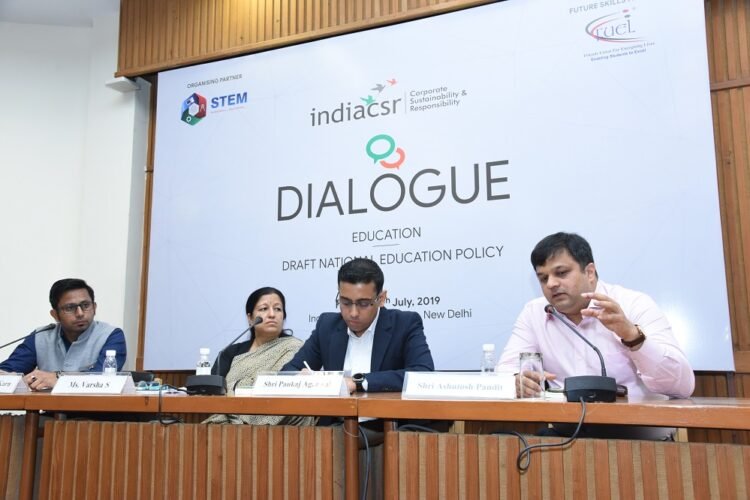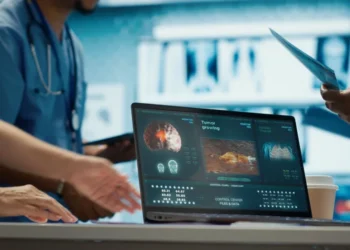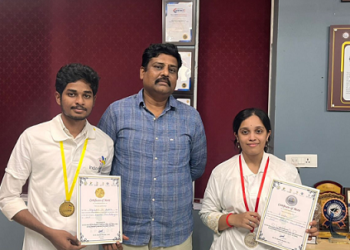New Delhi – Stressing on the need of quality education to the rural children, Ashutosh Pandit, chief executive officer (CEO), Stem Learning said that any education was incomplete without sensitising the kids about health and hygiene.
Pandit suggested that education system should involve the learning about hygiene & sanitation and there should be a provision of weekend classes for the same to increase the awareness level.
Pandit said this while speaking at a dialogue on Draft National Education Policy (NEP), on Friday (26 Jul) in New Delhi.
The dialogue was hosted by India’s largest news portal on CSR and Sustainability – India CSR Network – in collaboration with Stem Learning and Friends Union for Energising Lives (FUEL)
Speaking on his own experience, Pandit said that the company’s several education-based initiatives gave better results in rural areas in comparison to privileged private schools. They value it more because they find it hard to manage resources, he said.
The company has collaborated with top business houses to install Mini Science Centers (MSC) in schools. He stressed for a greater corporate commitment towards education in rural areas or in under privileged schools.
Mumbai-based Stem Leaning is empowering school teachers with innovative tools to teach science and mathematics. The company has been promoting learning in the field of science, technology, engineering and mathematics at the school level.
The company works with corporate groups to develop sustainable and effective CSR (Corporate Social Responsibility) initiatives in education. As of now, the company has tied up with over 100 companies including top banks like the HDFC Bank Ltd, ICICI Ltd and HSBC Ltd to implement its programmes, Pandit said.
Stem Learning’s Pandit too highlighted the importance of innovative pedagogy in school curriculum. The company designs plug-and-play models on Science, Technology, Engineering and Mathematics to enhance understanding and minimise rote learning, he said.
Pandit said that the company installed 700 Mini Science Centers (MSC) in rural schools where table-top models were put. The results and value for our products were far greater in rural centers, he said.
The MHRD constituted a committee in June 2017, under the chairmanship of former ISRO chairman Krishnaswami Kasturirangan to prepare the Draft NEP, 2019. The committee submitted its report on 15 Dec.
The policy was released on 31 May. The government has extended the deadline to submit suggestions from 30 Jun till 31 Jul.
The ‘India CSR Dialogue’ spoke about expectations and opportunities for the corporate sector and the civil society in the Draft NEP. It also talked about the role that the two stakeholders could play to take forward the Sustainable Development Goal (SDG) 4, which envisages to “ensure inclusive and equitable quality education and promote lifelong learning opportunities for all” by 2030.
India CSR will be collating the suggestions and feedback from the participants and will be sending it to the Ministry of Human resource Development (MHRD) before 31 Jul, the last date for sending the feedback.
“This is a historic moment. It is only the third instance in the history of Indian republic that an education policy is being envisaged. It was in 1966, that the policy was first formulated,” Dr. Harivansh Chaturvedi, Director at the Birla Institute of Management Technology (BIMTECH) said, while speaking at the occasion.
Dr. Chaturvedi welcomed the Draft policy’s proposal to increase the span of education from existing 6-14 years to 3-18 years. He also praised the proposal to improve infrastructure; closing schools which are financially unviable and shifting the students to neighborhood schools.
He however, said that the implementation part would pose real challenges for the government as an exercise of this nature would require huge resources including increased budget allocations. He said that the existing education budget was hardly 3% of the Gross National product (GNP) even after 52 years since the first policy came which recommended for a 6% allocation.
On the role and opportunities for the corporate sector working in education initiatives as part of their corporate social responsibility, Dr Chaturvedi said that the entire CSR expenditure in the country was Rs 15,000 crore while the government’s allocation on education in this year’s budget was around Rs 100,000 crore.
The CSR expenditure on education initiatives was even less so the primary responsibility rested with the government, he said adding that the private sector’s role was secondary but significant. It should act as an augmenter, he added.
He said that the corporate sector could invest in promoting soft infrastructure like teacher and parents’ education, soft skills development in students, among other things.
The aim to discuss the Draft NEP was to bring awareness about the policy and ensure a greater participation and commitment towards the goal, India CSR founder, Rusen Kumar said.
While a lot of corporate and civil society organisations are doing some wonderful work in the education sector, it will be interesting to know how they identify with the draft policy, he added. There is much clarity now on what we can expect from the businesses, he added.
The suggestions will be handed over to the MHRD so that it gets to know the concerns of each stakeholder, he said adding that the government in its wisdom can then take the call on how to go about them.
Among the key speakers, Nidhi Pundhir, Director at HCL Foundation; Praveen Karn, CSR head at Spark Minda Group; Varsha S, Head, Advocacy & Partnership at Mobile Creches and Suresh Reddy, Director & Lead CSR at SRS Foundation participated in discussions.
Atul Sud, Director (Legal and Regulatory Affairs) at Perfetti Van Melle and Neelam Makhijani, country director and chief executive officer (CEO) at ChildFund India gave their expert views on particular theme and issues.
Friends Union for Energising Lives (FUEL) stems from the understanding that the youth in India form one of the most vulnerable groups, who on the one hand are expected to be the leaders to determine the destiny of India, and on the other lack essential information and opportunities to succeed in life.






















